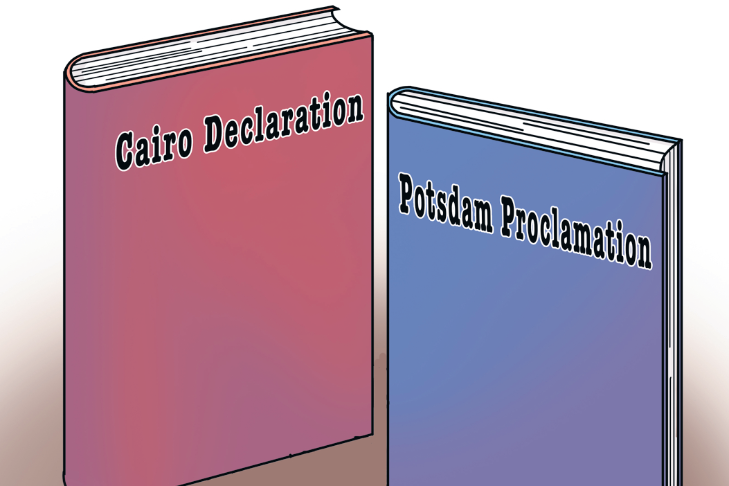Taiwan's return to China a vital part of post-World War II order

US shouldn't play fire on Taiwan question
The previous and incumbent US administrations have both emphasized dealing with other countries "from a position of strength". At its core, this reflects a belief that "might makes right", that whoever has the bigger fist and stronger arm gets to decide the rules.
The current US administration, in particular, pursues an unabashed "America first "strategy, openly measuring others by how many cards they hold, not according to international law or norms. It pays little attention to the United Nations or the broader international community.
Over the years, the world has repeatedly seen the United States overturn, deny or evade its own international commitments. It invokes international law when it serves its interests, and discards it when it does not. Washington hypes up the rules that benefit it but ignores or tramples those that require it to shoulder responsibilities. It has repeatedly "quit international organizations and torn up treaties", promoting the "rules of its own club" as "international rules". It resorts to double standards in the name of law to infringe on other countries' legitimate rights, interferes in their internal affairs, and imposes sanctions or launches military strikes without UN authorization.
This logic is also evident in how the US handles Beijing-related and Taiwan-related issues. The US frequently breaks its promise — pledging not to play the "Taiwan card "or support "Taiwan independence" — and then turns around to do exactly the opposite. Even when the very documents it is a signatory to or those adopted by the UN General Assembly are crystal clear — such as UN General Assembly Resolution 2758 or the Cairo Declaration — the US distorts or challenges them. It twists the plain meaning of the three China-US joint communiques, trying to justify its failure to honor commitments while continuing to use Taiwan as a tool to contain China and meddle in China's internal affairs.
The authority and seriousness of key legal and political documents, including the Cairo Declaration, the Potsdam Proclamation, the three China-US joint communiques, and UN General Assembly Resolution 2758, must be respected. In the three communiques, the US explicitly recognized that Taiwan is an integral part of China. The wording is clear and has been mutually confirmed in both the English and Chinese versions. Thus it cannot be distorted or treated as a linguistic game by any side.
A major power should act like one. Keeping promises and fulfilling obligations are the basic requirements of a responsible country. If the US claims to be a global power, it should demonstrate that with integrity and accountability, not by resorting to outdated power politics. Such tactics cannot halt the Chinese nation's rejuvenation, cannot prevent China's reunification, and cannot change the legal and factual truth that Taiwan is an inalienable part of China.
Zhu Zhongbo is director of the Department for World Peace and Security Studies, China Institute of International Studies.


































